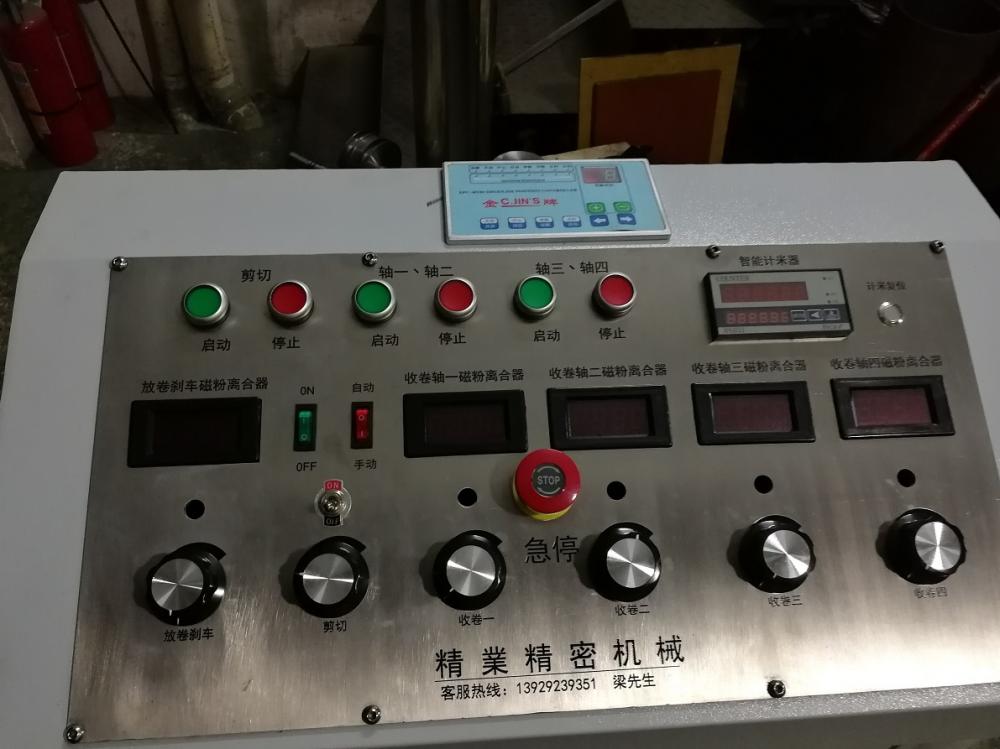(1). Raw material specifications
1. Material: metal strips such as copper and stainless steel strips.
2. Material width: within 420mm.
3. Material thickness: copper strip 0.05mm∽1.5mm, stainless steel 0.05mm∽1.0mm.
4. The inner diameter of the raw material roll: ï¿ 300mm.
5. Outer diameter of raw material roll:â‰¦ï¿ 1500mm.
6. Weight of raw material roll: ≤3000kg.
Turning Machinery,Design Metal Slitting Machine,New Type Metal Slitting Machine,New Type Metal Splitting Machine Dongguan Liaobu Jingye Precision Machinery Factory , https://www.dgjyjmjx.com
Closed to deal with falling profits
The current economic efficiency of the European petrochemical industry has dropped significantly. The performance in the second quarter of 2009 was relatively stable. With the slight increase in demand in some industries, the output had a modest increase. In the third quarter, the profit was stable, but the output was still limited.
Relevant data show that although the profit level in Western Europe has improved compared with the severe situation at the beginning of 2009, it is still fighting for a decrease in profits. For this reason, many manufacturers have closed down some of the production facilities that are less economical.
The most recent shut-down facilities in the European region are: a polystyrene production plant of BASF in Ludwigshafen, Germany; Dow Chemical's ethylene oxide and ethylene glycol production line in Dowton, United Kingdom; and Artenius PET packaging in Europe. The company's PTA plant in Wilton, UK, Celanese's acetic acid and vinyl acetate unit in France, Arkema's production facility for methyl methacrylate and vinyl products in France, Rhodia Italian polyamide device. In addition, Spain’s energy and chemical producer Repso has idled several installations in Tarragona, Spain, and BASF’s many installations in Ludwigshafen also reduce operating time.
Most companies also face tremendous pressure to repay debt. To this end, LyondellBasell restructured its global operations and announced the closure of steam cracker and HDPE units in the United States, as well as a low-density polyethylene unit in France; Dow Chemical announced the closure of benzene in the Netherlands Ethylene plant and polystyrene plant in Spain, and the closure and stripping of most units in the United States, the latest plan is to peel off the business of synthetic rubber, polycarbonate, ABS and other styrenic resins in Germany; Spain Polybenzene The manufacturer of ethylene dicarboxylate (PET) La Selda Barcelona has also recently announced that it will sell or close its PET plant in Europe.
External shocks intensify
At the same time, European petrochemical industry is facing increasing pressure from overseas expansion, continuous influx of new products, and consumption is still far below the level of sustainable production.
In recent years, most of the new investment in the Middle East has reached a world-scale scale, leading to advanced equipment technology. Benefiting from factors such as the integration of raw materials/refining, low labor costs, and proximity to the market, similar investment patterns have also occurred in other parts of Asia. For example, China has added many large-scale production lines. In contrast, European installations continue to age, and most companies have very tight financial conditions and few can consider increasing investment to maintain their long-term competitiveness.
After considering these factors comprehensively, many European manufacturers have realized that the profitability of their installations will become more and more difficult in the future and they will choose to close down the plant. This pressure can be seen in the production of polyolefins. Western Europe simply cannot compete with the Middle East in terms of cost. In addition, even the United States has an unparalleled advantage in entering the Western European market because it regains cheap gas and ethane in the Gulf of Mexico.
Still have hope out of the predicament
Related analysts said that the prospects of the European petrochemical industry will be subject to the recovery of the global economy. From the rest of 2009 to 2010, industrial production will gradually recover and consumption will follow. Once confidence is restored, the days of producers will gradually improve.
Based on the experiences of previous economic crises, after the apparent recovery in demand, the industry still prefers to shut down production facilities for a longer period of time. Because under such extreme pressure, companies can more clearly understand which assets are the most competitive in the future, and then, after the situation improves, focus their production on these assets. Therefore, the current internal and external troubles do not mean the end of the European petrochemical industry.
With regard to external shocks, there are currently not enough raw materials in the Middle East to replace all European production. Although the production of ethylene derivatives from ethane in the Middle East has significant cost advantages, it does not equate to advantages in other value chains. What is more noteworthy is that the cost advantage of ethylene in the Middle East will also be limited by the supply of ethane raw materials.
The continuous increase in production capacity in Asia, especially in China, is a proactive measure for the Asian petrochemical industry to meet local demand and reduce imports. However, it is difficult for this part of the increased production capacity to make China self-sufficient in the short term. It is expected that China will still be a net importer within a certain period of time.
Of course, the European chemical industry needs to withstand the test of this storm, but also requires manufacturers to continuously improve their position in the global supply curve is declining.
Jingye precision mechanical slitting machine is specially used for slitting various thin strips, such as copper,
Aluminum, iron, stainless steel, up to + -0.002mm

Alastair Hensman, a senior analyst at Nexant, an energy and chemical industry consulting firm, said that the European petrochemical industry is currently facing the worst operating environment for decades. Demand has shrunk dramatically, cost competitiveness has been lost to suppliers in the Middle East, and installations have been shut down. The current predicament will prompt changes in the region, but the slow recovery in demand will allow most people to survive.